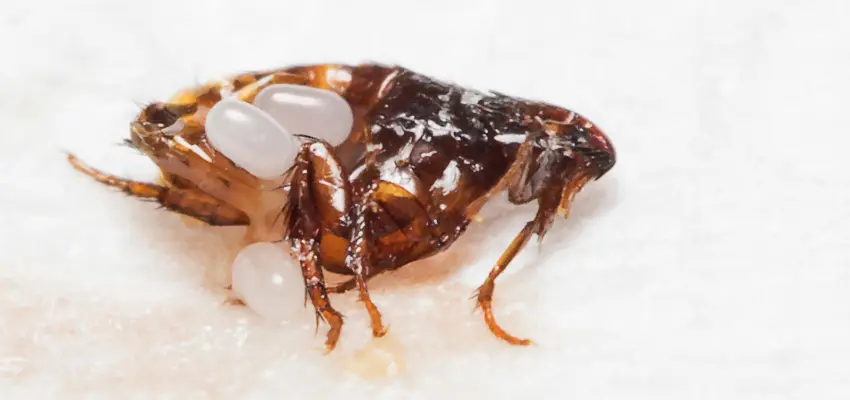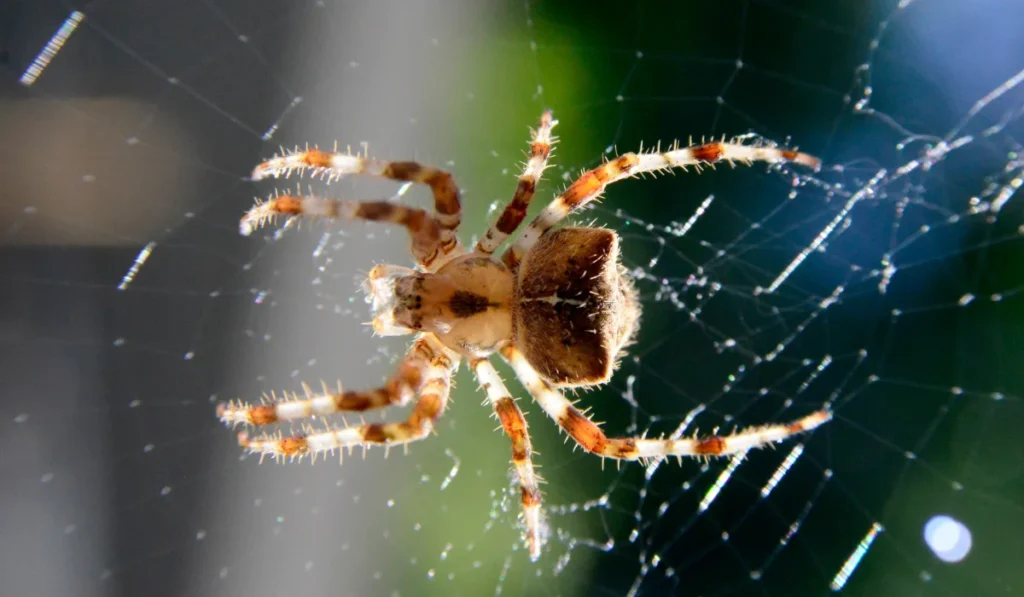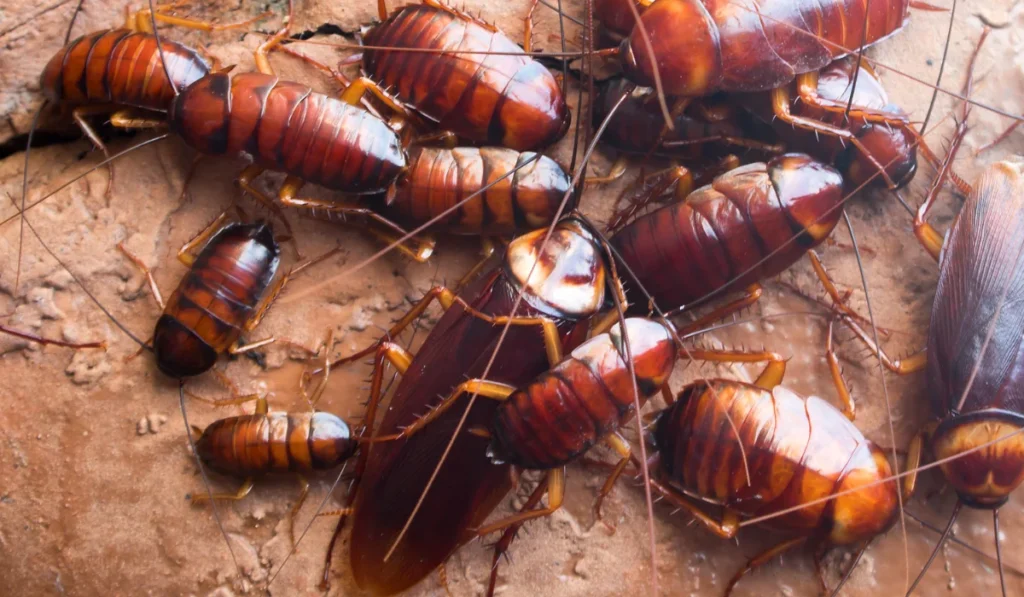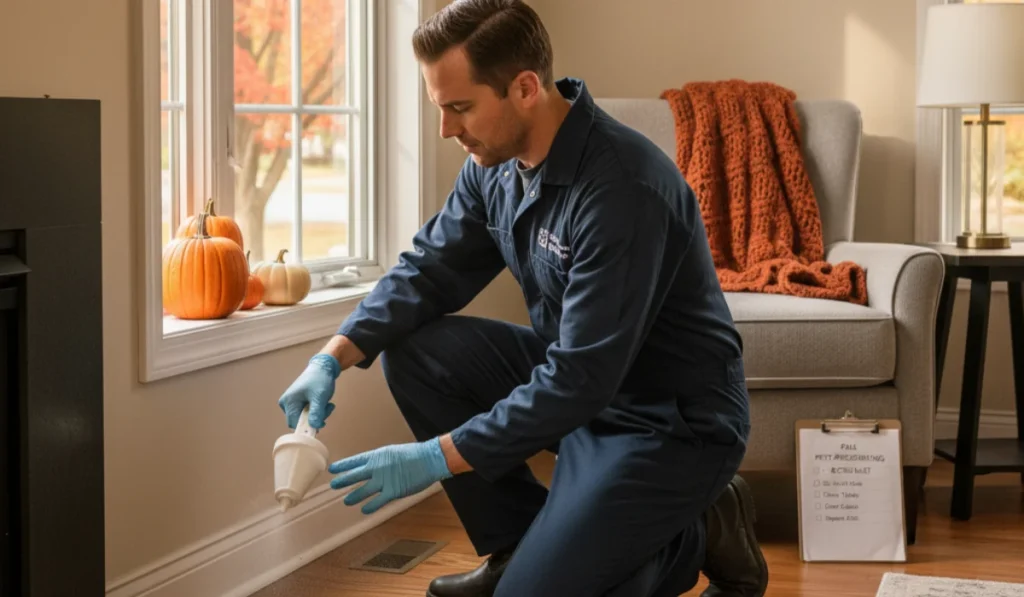
When heavy rain hits Alabama, expect more than puddles. Fleas often spike after storms. If your pets scratch more or you see ankle bites, the weather is likely to blame. Fleas thrive in warm, wet conditions, and rain helps them multiply rapidly.
In Birmingham, Huntsville, and a cross Alabama, flea infestations rise after big rainstorms. Fleas hide in tall grass, under decks, and in pet areas until moisture kicks off the next life cycle. Without quick action, a minor issue can turn into a full indoor infestation.
In this guide, you’ll learn how rain fuels the flea life cycle in Alabama, why populations spike after storms, the health risks, and the best steps to prevent and treat fleas, plus when to call professional pest control services.
Key Takeaways
- Heavy rain speeds up the flea life cycle, hatching hidden eggs and causing activity to spike right after storms.
- Cat fleas are the top species in Alabama homes. They bite pets and people, spreading quickly indoors.
- Female fleas lay dozens of eggs a day. In a few weeks, a few fleas can become a significant problem.
- Professional flea control targets every stage of the life cycle, which DIY often misses.
How rain fuels the flea life cycle in Alabama
Fleas have four life stages: egg, larva, pupa, and adult. After a storm, damp soil and humid air speed up hatching. Larvae feed on ‘flea dirt’, which is specks of dried blood from adult fleas, and then develop into pupae.
Pupae tuck into carpet fibers, pet bedding, and floor cracks, where they can hide for weeks. When they sense vibrations, carbon dioxide, or warmth, they emerge as hungry adults. Females lay eggs within hours, and the cycle restarts. Because Alabama is warm and humid year-round, cat fleas keep coming back. Every rainstorm boosts their numbers.
Why infestations spike after heavy rains
Rain pushes fleas from outdoor hiding spots. When yards flood or grass stays wet, fleas and ticks move toward homes. Pets can carry them inside, where they hide in rugs and furniture.
Wild animals also play a role. Raccoons, rodents, and stray cats look for dry shelter after storms. They often carry cat fleas, which then spread to your pets. Cockroaches and termites also become more active in humid conditions, so it’s not unusual for homeowners to deal with several pests at once after a rainy week.
Health risks for pets and families
Flea bites cause itching and skin irritation, but the risks go further. Fleas can transmit tapeworms to pets, and heavy infestations may lead to anemia.
Ticks often appear during the same wet, warm periods, carrying diseases such as Lyme disease and Rocky Mountain spotted fever. A surge in flea & tick activity means families and pets need strong protection, including tick prevention and repellents for both indoor and outdoor spaces.
Steps for flea prevention after rainfall
After storms, simple habits can make a big difference. Keep grass short, clear leaves and yard waste, and remove standing water. Without these steps, your yard can turn into a breeding ground for fleas and mosquitoes.
Indoors, wash pet bedding in hot water and vacuum daily. Heat and suction remove eggs and nudge pupae to hatch, so treatments work better. If you see fleas on socks or furniture, DIY may not be enough.
A professional pest control service is the most reliable way to stop a flea infestation. At Magic City Pest Control, our flea treatment includes both indoor and outdoor applications, covering up to half an acre of yard. We also recommend that pet owners pair flea prevention with vet-approved tick treatments for full coverage.
Making the right flea control choice in Alabama
Flea problems in Alabama don’t stop when the rain dries up. These pests can linger in carpets, bedding, and shaded yards long after storms pass.
Magic City Pest Control provides targeted treatments that break the cycle and keep infestations from returning.
Ready for a home free of fleas? Contact us today.
FAQs
Why do fleas get worse after rain in Alabama?
Rain makes air and soil damp, speeding egg hatching and larval growth. It also drives wildlife toward homes, where they may carry cat fleas that spread to pets.
How can I prevent fleas after storms?
Keep grass short, clear yard debris, and wash pet bedding in hot water. Use pet preventives and consider professional pest control to block new activity.
What should I do if I already have a flea infestation?
Vacuum daily, wash bedding in hot water, and schedule a flea treatment. Magic City Pest Control targets every stage of the life cycle to clear infestations fast.




